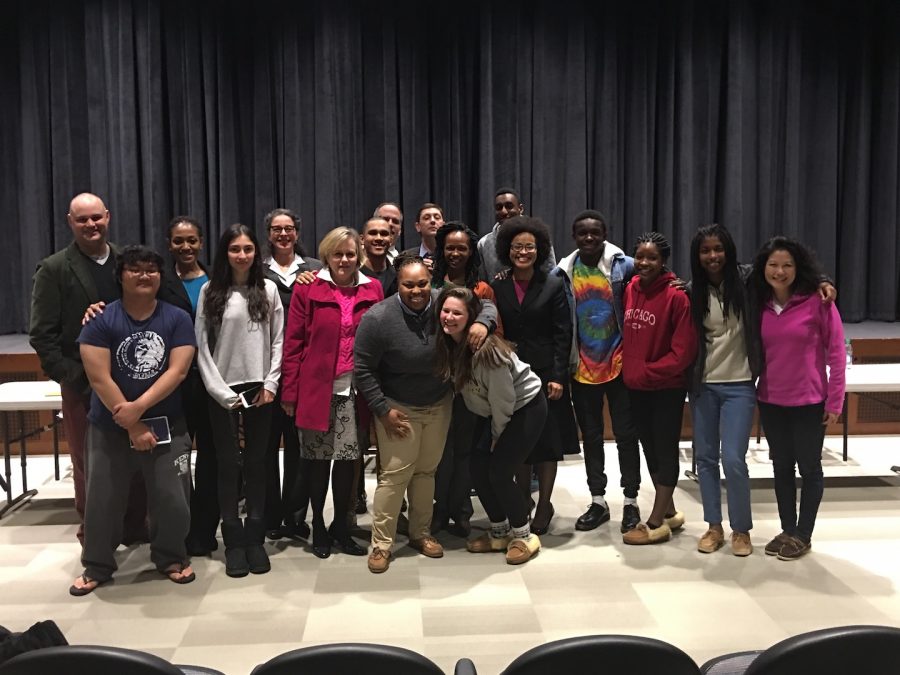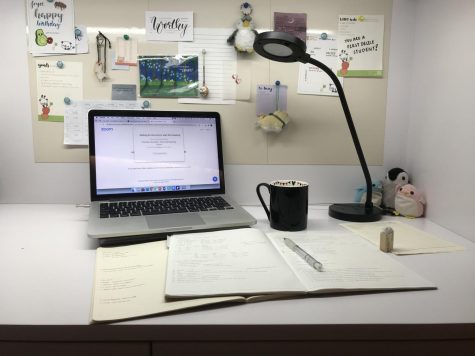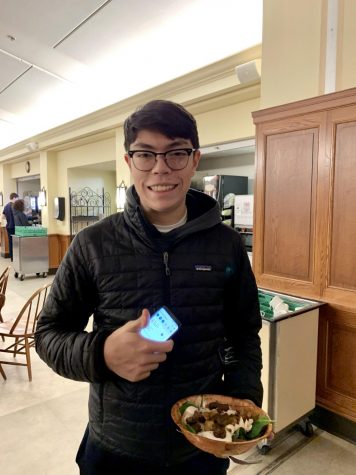Defamation, the Play
November 20, 2016
On Monday, November 7, the cast of Defamation, the Play by Todd Logan performed in Mattison Auditorium. The play was recommended to Mr. Stewart, Theatre Director, by Ms. Bennett, who had heard rave reviews of the play, and had a large, enthusiastic showing of 3rd and 6th formers as well as faculty.
The play itself was divided into three parts: a mock trial, Wade v. Golden, over defamation; a deliberation by the jury and the audience; and a final discussion after the jury had made a decision.
In the trial, Golden, played by Tom Hickey, accused Wade, played by Eunice Woods, of having stolen a precious heirloom watch, a fact which he relayed on to his employee at the law firm, Jordan, played by Diana Coates, who stopped doing business with Wade, and testified in court that they had taken business to a better, larger company. Golden was defended by Allen, played by Kimm Beavers, the managing producer who also stood in for the role, Wade was defended by Lawton, played by Jonathan Nichols, and the case was presided over by Judge Barnes, played by Jeanne T. Arrigo.
Wade testified and appealed that Golden had accused Wade of stealing the watch on grounds of her being black, and told Jordan that “If I were you, I wouldn’t use [Wade].” Jordan responded with that she had been on good terms with Wade for nine years, but due to economic depression, Wade’s company could not match the offer of a much larger company, and that Golden’s words would not have changed the outcome. Golden testified that he was sure he had the watch, and that the only person around who could have taken it was Wade. The trial progressed with both lawyers using race, positions of power, leverage, and artful narrative to appeal to the jury in favor of who they were representing.
When the jury was asked to deliberate the case, students were encouraged to volunteer their opinions on stage, and Judge Allen asked discussion-provoking and thoughtful questions to help shape each student’s opinion. The audience reached the conclusion and by a close difference found the case to be in favor of Golden, and then Judge Allen refused to reach a final verdict and instead left the truth of the matter a mystery.
This invited more students to voice their opinions. The stage was yet again open to students and the actors to discuss the issues race, emotion, the way a lawyer could use these to convince a jury, and the way a civil case is based on “preponderance of evidence.” Some students believed that the case should go to Wade based on their knowledge of racism and Golden’s favorable economic position, and others believed that the case should go to Golden based on the evidence or lack thereof. Another popular contention was that race was a distraction to the case, while others stated that race was undoubtedly a relevant factor in the turn of events. “The kids were very enthusiastic and participated a lot. I think the audience was great,” says Stewart. “The discussion is so great because you see people come at race from two different perspectives,” says managing producer Beavers.
Students also had the chance to discuss with the actors after the play as well, where Arrigo (Judge Allen) commented that “there is no outcome [in the case], because the play is supposed to invite self-reflection.” The students found themselves questioning their own views regarding race and some found that they had some surprising internal biases within. Stewart also commented that “the play really affected the students, made them to think about race, and probably will make them talk and think about it throughout the week. It was a huge success.”
More information about the play can be found at defamationtheplay.com.







